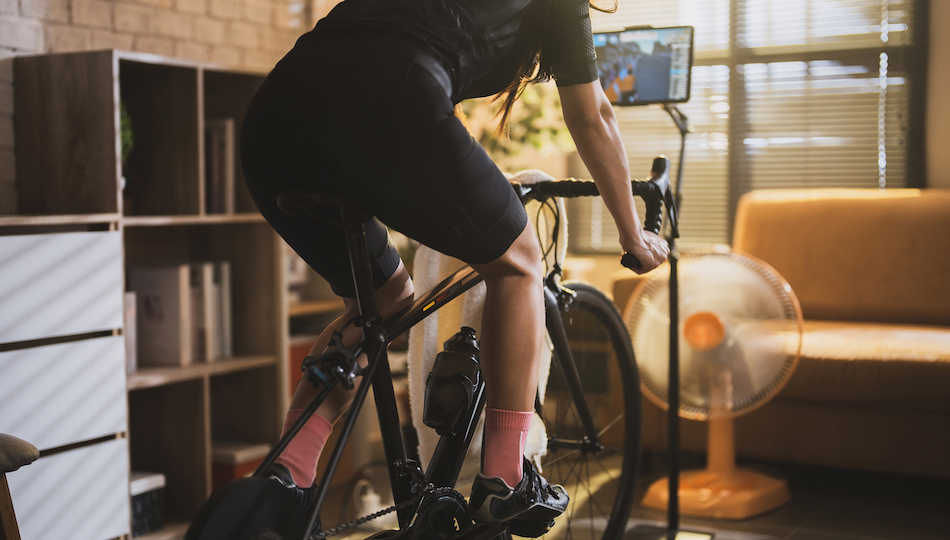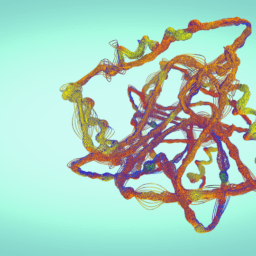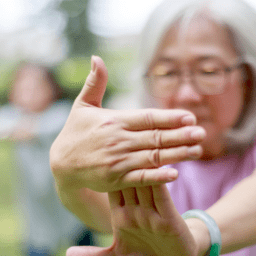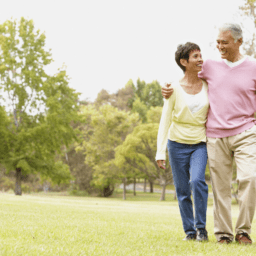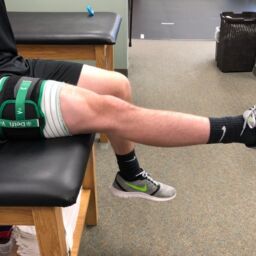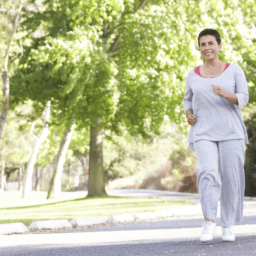In 2018, we funded Dr. Angela Ridgel’s research into optimizing high-intensity SMART cycling as an intervention for Parkinson’s. In 2022, Dr. Ridgel and her team published the results of their research.
The Study
Our funding supported Dr. Ridgel and her team’s development of a control module for stationary bicycles that can monitor cyclists’ performance and dynamically alter exercise intensity. The module was used to evaluate a series of cycling workouts undertaken by 31 participants.
The aim of altering exercise intensity was to challenge study participants to maintain a pedaling cadence of 80-90 rotations per minute (RPM). This aim was investigated following the results of previous research, which showed that “forced” high-RPM cycling on two-person bicycles produced symptomatic improvement for people with Parkinson’s.
Dr. Ridgel’s study monitored participants during up to six cycling sessions using the control module. Participants were evaluated using the UPDRS before and after cycling to determine whether the program contributed to symptomatic improvements.
The Study’s Findings and Limitations
The study’s chief finding is that high-cadence dynamic cycling improves motor symptoms of Parkinson’s but that some participants benefited more than others.
In attempting to understand the variability amongst the participants, the study team investigated whether demographic information or data collected by the control module could help them predict who would benefit most from dynamic cycling. They found that Body Mass Index, UPDRS scores at the start of the study, and the amount of pedaling effort exerted by a participant may help predict who would benefit from the adaptive cycling program. However, the study report notes that “more studies are needed to conclusively determine the role of effort on the (post-activity) UPDRS score and the role of demographic variables on effort.”
In their report, the study team acknowledges some limitations of their study. The first limitation is that mechanical issues interrupted data collection, including heart rate data. Other limitations included the small size of the study, the low number of exercise sessions, and the short timeframe in which the sessions occurred.
The team also notes that they made choices about how to collect and analyze data, which necessarily limited the conclusions they could draw from the data they had. All researchers make such choices, which is one important reason to evaluate resources for credibility and reliability carefully.
What Can You Take Away from This Study
We have said for a long time that exercise is one of the most important things you can do to live well with Parkinson’s today, and even though there are no headline-grabbing highlights to report from this study, Dr. Ridgel’s research provides additional support for this idea.
Progress through research tends to be incremental. In fact, Dr. Ridgel’s study references over 20 previous studies that span well over 20 years. This is exciting because the growing body of evidence confirms that physical activity benefits people with Parkinson’s. From cycling and pickleball to skating, boxing, and rock climbing, the variety of activities that show promise in alleviating Parkinson’s symptoms continues to increase—even though, as evidenced by Dr. Ridgel’s study, we don’t yet have enough information to recommend any specific activity or exercise routine to all people with Parkinson’s.
With this in mind, there are two main messages to take away from Dr. Ridgel’s study. First, dynamic, high-RPM cycling may help improve your Parkinson’s symptoms; second, if it doesn’t help you, you can try many other activities.
Below, you can read more about some of the activities people have associated with improving Parkinson’s symptoms and links to ongoing exercise clinical trials investigating some of these associations.
The key to remember is that you are the most knowledgeable person about what improves your Parkinson’s symptoms and your quality of life. Read what others are trying or come up with your own idea, and then talk with your care team about the best ways for you to incorporate more activity into your daily life!
Further Reading
“SMART” Cycling Computerized Controller Research Overview
It Is Not About The Bike, It Is About The Pedaling
How Pickleball is Changing the Lives of People with Parkinson’s
The Benefits of Rock Climbing for Parkinson’s
Sport Climbing for Parkinson’s: Study Report
Walking Football for Parkinson’s
Skating Therapy Making Significant Difference For Those Living With Parkinson’s
Boxing with and without Kicking Techniques for People with Parkinson’s Disease
Boxing vs Sensory Exercise for Parkinson’s Disease
A Sampling of Ongoing Exercise Clinical Trials
Aerobic Exercise in Parkinson’s Disease
Exercise & Brain Energetics in PD
Exercise in Advanced Parkinson’s with Deep Brain Stimulation (DBS)
Remote Dynamic Cycling for the Customized Off-site Rehab in Parkinson’s
Virtual Cycling Environments for Persons With Parkinson’s
Immersive Virtual Reality Bicycling for Persons With Parkinson’s
PD-Ballet: Effectiveness and Implementation in Parkinson’s
The Impact of Dancing in Parkinson’s
Golf, Physical Rehabilitation, and Movement Disorders
Boxing–Effects of Exercise on Glymphatic Functioning and Neurobehavioral Correlates in Parkinson’s
Effect of a Boxing Program on People With Parkinson
WANT MORE PRACTICAL ARTICLES LIKE THIS?
You can learn much more about living well with Parkinson’s today through our Every Victory Counts® suite of resources. Each manual is packed with up-to-date information about everything Parkinson’s. Click the link below to reserve your manual(s).


